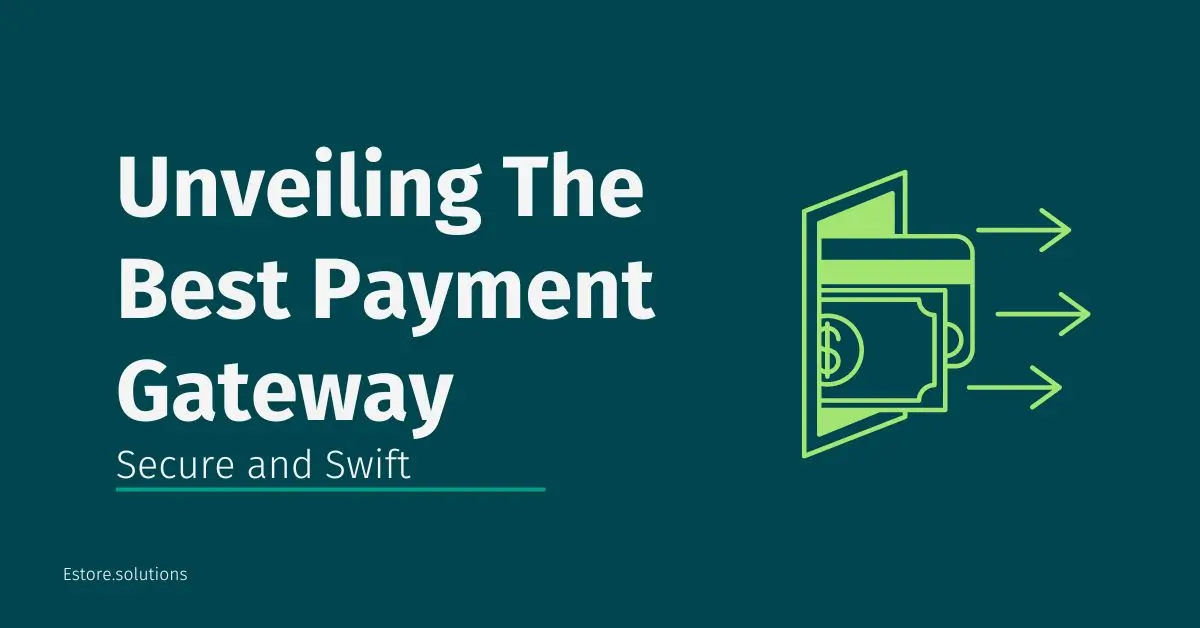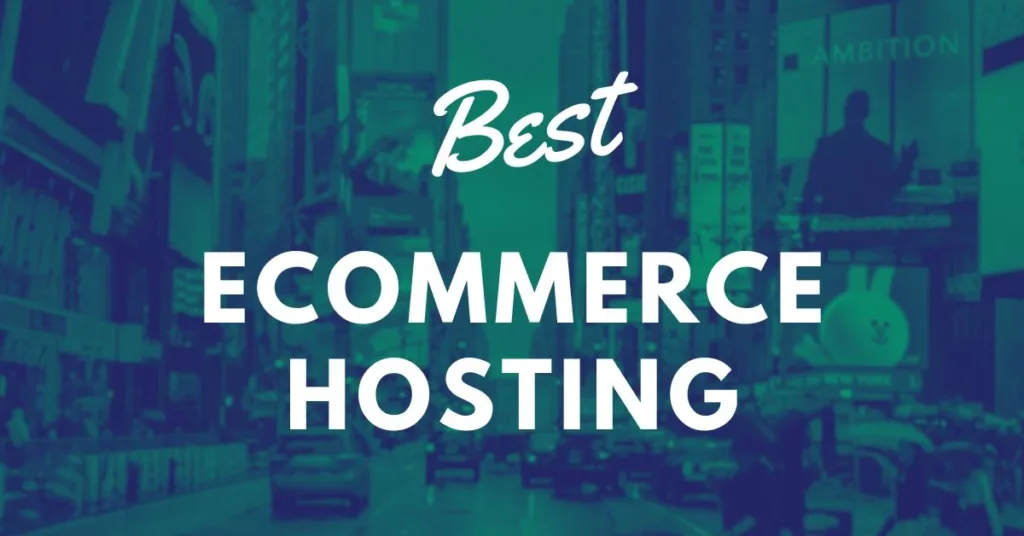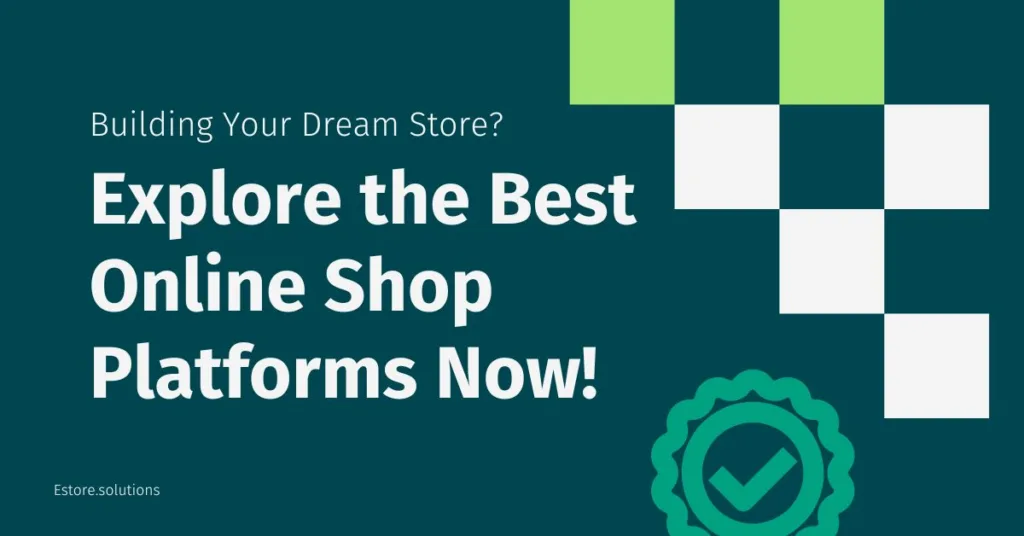Dive into the world of effortless online transactions with our comprehensive guide to the best ecommerce payment gateways. From choosing the ideal payment system for your e-commerce platform to finding the most reliable service providers, we’ve got you covered. Explore the top players in the industry and make informed decisions for a seamless payment experience on your website.

Enhance your e-commerce game with the latest insights on payment gateways. Share this article to empower fellow entrepreneurs in optimizing their online payment systems. Visit estore.solutions for content upgrades and share your valuable feedback. Let’s elevate the e-commerce experience together!
[ez-toc]Introduction
Embark on your e-commerce journey with a solid grasp of payment gateways. These gateways are virtual checkpoints ensuring smooth online transactions. Think of them as digital cashiers for your online store, securely handling customer payments. Explore why they’re vital, how they’ve evolved, and the crucial role they play in making your e-commerce venture a success. Let’s unravel the world of e-commerce payment gateways together!
Key Components of E-commerce Payment Gateways
Merchant Account
Welcome to the financial hub of your online store – the merchant account. Simplified for beginners, a merchant account is essentially your digital cash register, designed to handle incoming payments. Let’s break it down:
- Definition and Role: A merchant account is your business’s online wallet, facilitating the acceptance of customer payments.
- Types of Merchant Accounts: Tailored to diverse needs, these come in various types. Choose based on your business size, industry, and the volume of transactions you anticipate.
Understanding and selecting the right merchant account lays the groundwork for a secure and efficient payment process, ensuring a hassle-free experience for both you and your customers.
Payment Processor
Now, let’s delve into the role of payment processors in simplifying your e-commerce transactions. Think of them as the translators between your online store and the bank, ensuring communication flows smoothly. Key players in this realm, such as Stripe and PayPal, take on the responsibility of securely transmitting payment data. Understanding their functionality and the available options is crucial for a hassle-free payment experience on your e-commerce platform.
- Functionality and Role:
- Payment processors handle the actual transaction process, authorizing payments and transferring funds.
- They communicate between your online store, the customer’s bank, and your merchant account.
- Key Players in the Payment Processing Industry:
- Explore reputable names like PayPal, known for its widespread use and user-friendly interface.
- Stripe is another major player, offering a versatile range of services for businesses of all sizes.
By comprehending the significance of payment processors and recognizing key players, you pave the way for secure and efficient online transactions on your e-commerce platform.
Security Features
Let’s demystify the crucial security features within e-commerce payment gateways, ensuring your customers’ transactions are safe and sound.
- Encryption and Tokenization:
- Encryption acts like an online vault, safeguarding sensitive data during transmission.
- Tokenization replaces actual card details with a unique token, adding an extra layer of security.
- Fraud Prevention Measures:
- Gateways employ advanced algorithms to detect and prevent fraudulent activities.
- Real-time monitoring and machine learning contribute to identifying suspicious transactions.
Understanding these security components helps fortify your online store against potential threats, building trust with your customers and ensuring the integrity of your e-commerce transactions.
Best E-commerce Payment Gateways
Discover the go-to solutions for seamless online transactions with these popular e-commerce payment gateways.
- A. PayPal:
- Overview: PayPal is a widely recognized payment platform, trusted for its global reach and user-friendly interface.
- Features and Integration Options: With various features like easy integration and buyer protection, PayPal is ideal for businesses of all sizes.
- B. Stripe:
- Overview: Stripe stands out for its versatility and developer-friendly environment, making it a favorite among businesses looking for customization.
- Features and Integration Options: From subscription management to one-click payments, Stripe offers a range of features adaptable to diverse needs.
- C. Square:
- Overview: Square is known for its simplicity, catering to small businesses with its intuitive design and straightforward processes.
- Features and Integration Options: With features like contactless payments and inventory management, Square is a solid choice for those starting out.
Explore these gateways to find the one that aligns with your business goals, whether you’re a global enterprise or a budding entrepreneur. Each option brings unique features to enhance your e-commerce experience.
Key Considerations for Selecting an E-commerce Payment Gateway
Navigating the sea of payment gateways requires a thoughtful approach. Consider the following factors to make the right choice for your online business.
- A. Transaction Fees:
- Overview: Understand the cost structure of each gateway to ensure it aligns with your budget.
- Comparison of Fees Among Popular Gateways: For instance, while PayPal may have a straightforward fee structure, Stripe might offer more tailored options.
- B. Security:
- Importance of Security in E-commerce Transactions: Prioritize gateways with robust security features to protect your customers’ data.
- Comparison of Security Features Among Gateways: Compare security measures; for example, Stripe’s advanced encryption may be a deciding factor.
- C. Integration Options:
- Compatibility with E-commerce Platforms: Ensure your chosen gateway seamlessly integrates with your e-commerce platform.
- API and SDK Availability: For example, Square’s user-friendly integration might be advantageous for beginners.
By examining transaction fees, emphasizing security, and evaluating integration options, you pave the way for a reliable and secure e-commerce payment gateway. Choose wisely based on your business’s unique needs and goals.
Trends and Challenges in E-commerce Payment Gateways
Navigate the evolving landscape of e-commerce payment gateways by exploring the challenges and emerging trends in the industry.
- A. Emerging Technologies:
- Blockchain and Cryptocurrencies: Witness the rise of blockchain and cryptocurrencies, offering decentralized and secure transaction methods.
- Biometric Authentication: Experience the future with biometric authentication, adding an extra layer of personal security.
- B. Regulatory Compliance:
- Overview of Regulatory Challenges: Grasp the importance of adhering to regulatory standards to ensure legal and secure transactions.
- Compliance Solutions: Explore solutions like automated compliance checks to navigate regulatory hurdles effectively.
- C. User Experience:
- Improving Checkout Processes: Embrace the ongoing trend of enhancing user experience by simplifying and streamlining the checkout process.
- Mobile Payment Trends: Stay updated on mobile payment trends, providing convenience for users on the go.
Stay ahead of the curve by understanding these challenges and trends, ensuring your e-commerce payment gateway remains not only secure and compliant but also aligned with the evolving needs and preferences of your customers.
Conclusion
As we wrap up our exploration of e-commerce payment gateways, let’s recap key insights and glimpse into the future.
- A. Recap of Key Points:
- Summarize the importance of merchant accounts and payment processors in facilitating secure transactions.
- Highlight the features of popular gateways like PayPal, Stripe, and Square.
- B. Future Outlook for E-commerce Payment Gateways:
- Reflect on the continuous evolution of payment gateways, fueled by emerging technologies like blockchain and biometric authentication.
- Anticipate the importance of regulatory compliance and the ongoing focus on enhancing user experience.
In conclusion, mastering the realm of e-commerce payment gateways is essential for a thriving online business. Stay informed, adapt to emerging trends, and choose the right gateway to ensure secure and seamless transactions for your customers.



